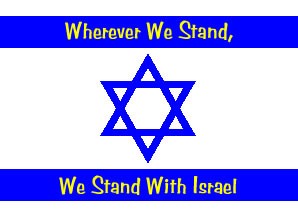What happened with Turkey? Over the last few years Turkey’s policy has changed. Today’s government has its focus on Islam and as a result, Turkey has turned away from the West. Turkey today is trying to lead the Islamic world and rebuild the Ottoman Empire. It has now become an enemy of Israel. It embraces the leaders of Iran and Hamas, all of whom called for Israel’s destruction.
Turkey has a long history. In a short version; the Persian Empire occupied the area in the 6th century B.C., giving way to the Roman Empire, then later the Byzantine Empire. In the early 13th century, the Ottoman Turks first appeared, and gradually spread through the Near East and Balkans, capturing Constantinople in 1453 and storming the gates of Vienna two centuries later. At its height, the Ottoman Empire stretched from the Persian Gulf to western Algeria. Lasting for 600 years, the Ottoman Empire was not only one of the most powerful empires in the history of the Mediterranean region, but it generated a great cultural outpouring of Islamic art, architecture, and literature.
After the reign of Sultan Süleyman I the Magnificent (1494–1566), the Ottoman Empire began to decline politically, administratively, and economically.
Over the last few years, diplomatic dialogue between Turkey and Israel has become strained, particularly following the 2008-2009 Israel-Gaza Conflict. And last week Turkey provoked Israel into action with its so-called “Peace Flotilla”, knowing full well that the world would blame Israel for any casualties.
The Rabbinical Council of Judea and Samaria issued a statement Thursday in which it said that the incident in which Israel intercepted a flotilla seemed like the Biblical description of the beginning of the Gog and Magog process.
What does the Bible say about Gog and Magog? The book of Ezekiel describes, in chapters 38 and 39, a vision of a war where the world is united against Israel that will precede the final redemption of Israel and the world.
The study of Gog and Magog has long been a challenge to Bible scholars and historians alike. Magog is described in Genesis 10:2 and 1 Chronicles 1:5 as a grandson of Noah.
Prophet Ezekiel claims Magog's descendants are from the far north, and will someday attack Israel. Throughout history we find Gog and Magog identified with many place names, as well as numerous tribes and people groups; some firmly leaving their mark on history, including many present-day cultures. Perhaps the most known of Magog's descendants (sometimes referred to as Magogians) are the Scythians. Scythian culture extended more than 2,000 miles east from the Ukraine to Mongolia. These peoples would later form tribes and ethnic groups we would come to know as familiar names in history: Huns, Turks, Tartars, Mongols and others.
There is today a growing interest in the Ezekiel prophecies and whether they could play out in our lifetime.
We’ve never seen a convergence of geopolitical and spiritual events so consistent with Ezekiel 38-39 in history like we are seeing today. I believe the rabbis are right - we are living in the days of Ezekiel’s prophecies - and it is possible that we could see these events unfold soon.







No comments:
Post a Comment